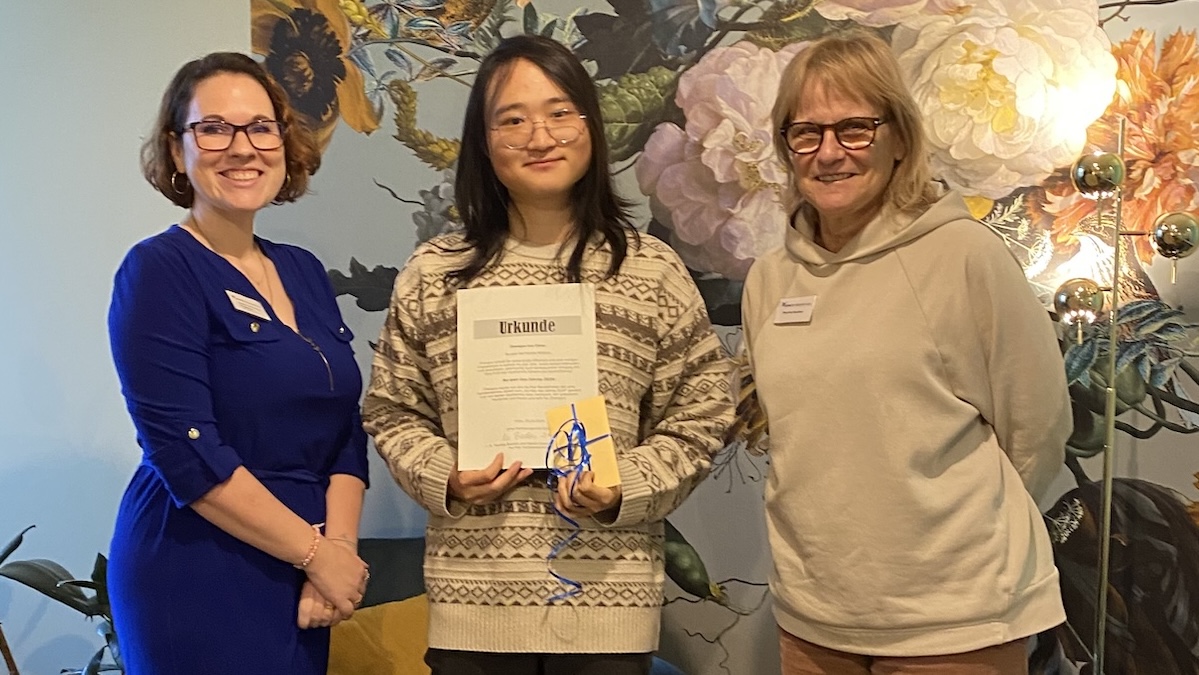
Au-pair of the year 2024 is Zhangyu from China
Zhangyu applied for the Au-pair gallery of the pme Familienservice in the fall of 2023 with a very special introduction video, and his current host family soon became aware of him and took him straight to their hearts. The Willems family from Leverkusen were impressed by his great willingness to learn, his social commitment and, above all, his loving, open nature.
"He has enriched our lives in so many ways"
His host family, consisting of a father, mother, two sons aged 7 and 10 and a dog, describe working with Zhangyu as a great enrichment:
"He has enriched our lives in so many ways and shows exceptional development and commitment. What is particularly noteworthy is how lovingly he looks after our son with ADHD. This is no easy task, but Zhangyu handles it with patience, empathy and consistency. Our son has taken him to his heart and benefits enormously from his support."
Despite initial language barriers, Zhangyu has made remarkable progress in a short space of time.Zhangyu came with A1 German language skills and has reached B1 level in just 8 months. His current goal is B2 level. "His willingness to learn and his perseverance are admirable," says the family.
Involvement in school, the LGBTQ community and soon an FSJ
Zhangyu also volunteers in the family's eldest son's school cafeteria, where he sells bread rolls - another sign of his commitment and willingness to get involved in the community.
Zhangyu also feels part of the LGBTQ community and is involved in it, which shows that he not only takes responsibility in our family, but also in society.
After his Au-pair year, Zhangyu will start a voluntary social year (FSJ) at an open all-day school, where he will work in afternoon supervision. Later, he would like to study education so that he can continue working with children and young people.
About the "Au-pair of the Year" award from the pme Familienservice
Since 2013, a jury from pme Familienservice has selected the best au pair from the applications received from host families. Au-pair of the year. With this award, pme Familienservice recognizes the courage and commitment of young people from abroad who leave their family and friends for a longer period of time. Every year, host families have the opportunity to recognize the work of their au pairs by nominating them.
Au-pair with pme Familienservice
pme Familienservice is your strong partner for safe and qualified Au-pair in Germany. With over 30 years of experience in Au-pair, pme Familienservice offers families and au pairs comprehensive information, qualified advice and reliable support throughout their stay.
Placement is free of charge for au pairs. All information for au pairs in Germany.




